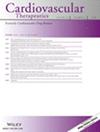Advantages and Disadvantages of Inclisiran: A Small Interfering Ribonucleic Acid Molecule Targeting PCSK9—A Narrative Review
IF 3.4
4区 医学
Q2 CARDIAC & CARDIOVASCULAR SYSTEMS
引用次数: 28
Abstract
As dyslipidemias remain one of the main risk factors for developing cardiovascular disease, the question of maintaining optimal lipid levels with pharmacotherapy remains a subject of interest worldwide. In contrast to conventional pharmacotherapy, human monoclonal antibodies directed against proprotein convertase subtilisin/kexin type 9 (PSCK9) and small interfering RNA- (siRNA-) based drug targeting PCSK9 represent a new strategy for managing lipid disorders and reducing cardiovascular risk. Inclisiran is a long-acting, synthetic siRNA that targets hepatic production of PCSK9 and consequently causes a reduction in LDL-C concentrations by approximately 50% compared to placebo. The structural modification of inclisiran has led to better stability and prolonged biological activity of the drug. The main advantage over conventional pharmacotherapy and anti-PCSK9 monoclonal antibodies is its favorable administration regimen (0–90–180 days), which should lead to much better compliance. Clinical trials conducted so far have confirmed the tolerability and efficacy of inclisiran in long-term PCSK9 and LDL-C level reductions. Moreover, a short-term follow-up on the safety of inclisiran showed a relatively good safety profile of the drug. However, it is still of great importance for ongoing and forthcoming clinical trials to be continued on a larger group of patients in order to assess long-term tolerability, efficacy, and safety of inclisiran.Inclisiran的优缺点:一种靶向pcsk9的小干扰核糖核酸分子
由于血脂异常仍然是发展心血管疾病的主要风险因素之一,通过药物治疗保持最佳脂质水平的问题仍然是全世界感兴趣的主题。与传统药物治疗相比,针对前蛋白转化酶枯草杆菌蛋白酶/kexin 9型(PSK9)的人单克隆抗体和靶向PCSK9的基于小干扰RNA(siRNA-)的药物代表了一种治疗脂质紊乱和降低心血管风险的新策略。Inclisiran是一种长效合成siRNA,靶向肝脏产生PCSK9,因此与安慰剂相比,LDL-C浓度降低约50%。inclisiran的结构修饰使药物具有更好的稳定性和延长的生物活性。与传统药物治疗和抗PCSK9单克隆抗体相比,其主要优势是其良好的给药方案(0-90-180天),这应该会带来更好的依从性。到目前为止进行的临床试验已经证实了inclisiran在长期降低PCSK9和LDL-C水平方面的耐受性和有效性。此外,对inclisiran的安全性进行的短期随访显示,该药物的安全性相对较好。然而,为了评估inclisiran的长期耐受性、疗效和安全性,在更大的患者群体中继续进行正在进行和即将进行的临床试验仍然非常重要。
本文章由计算机程序翻译,如有差异,请以英文原文为准。
求助全文
约1分钟内获得全文
求助全文
来源期刊

Cardiovascular Therapeutics
医学-心血管系统
CiteScore
5.60
自引率
0.00%
发文量
55
审稿时长
6 months
期刊介绍:
Cardiovascular Therapeutics (formerly Cardiovascular Drug Reviews) is a peer-reviewed, Open Access journal that publishes original research and review articles focusing on cardiovascular and clinical pharmacology, as well as clinical trials of new cardiovascular therapies. Articles on translational research, pharmacogenomics and personalized medicine, device, gene and cell therapies, and pharmacoepidemiology are also encouraged.
Subject areas include (but are by no means limited to):
Acute coronary syndrome
Arrhythmias
Atherosclerosis
Basic cardiac electrophysiology
Cardiac catheterization
Cardiac remodeling
Coagulation and thrombosis
Diabetic cardiovascular disease
Heart failure (systolic HF, HFrEF, diastolic HF, HFpEF)
Hyperlipidemia
Hypertension
Ischemic heart disease
Vascular biology
Ventricular assist devices
Molecular cardio-biology
Myocardial regeneration
Lipoprotein metabolism
Radial artery access
Percutaneous coronary intervention
Transcatheter aortic and mitral valve replacement.
 求助内容:
求助内容: 应助结果提醒方式:
应助结果提醒方式:


